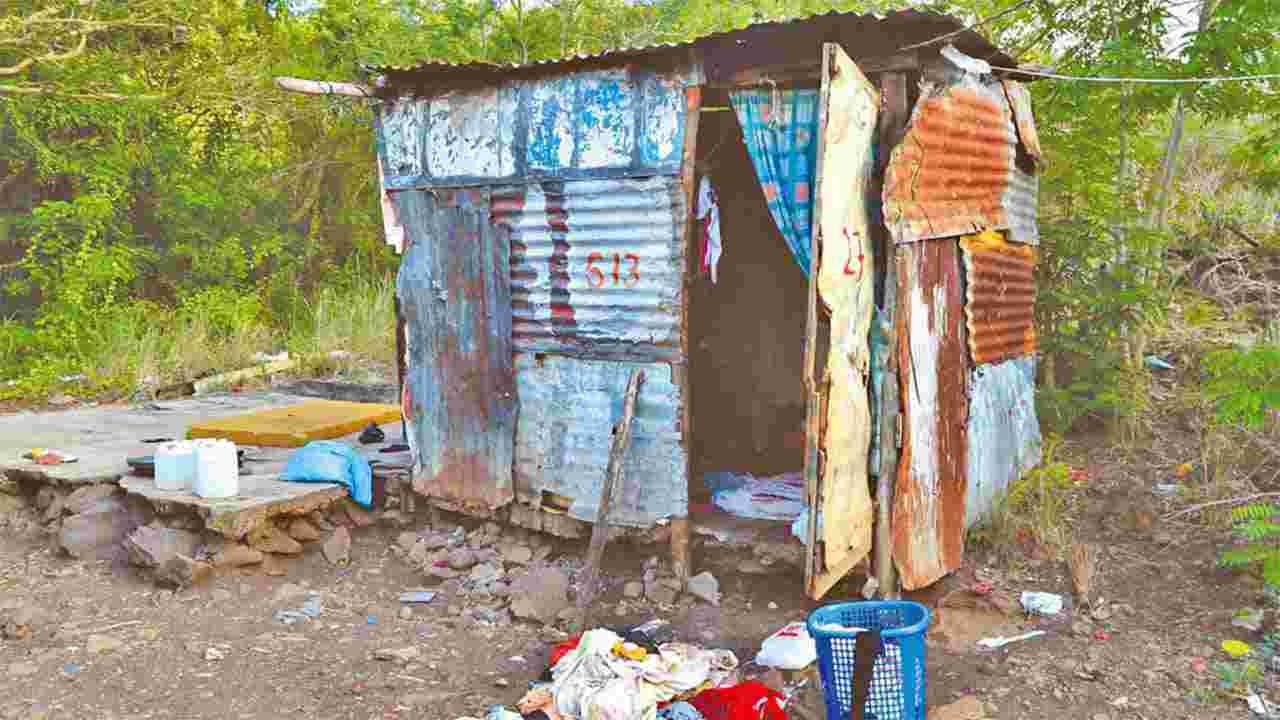
The government wants to go big in its fight against absolute poverty. To that effect, a new social register is in preparation, along with other accompanying measures such as the Marshall Plan and the National CSR Foundation.
To eradicate poverty, we have to increase the size of the national pie and create more national wealth. However, higher National Income would not in itself suffice to address the issue of people living in absolute poverty. This statement was made by the Finance Minister, Pravind Jugnauth, speaking on the sidelines of a talk by Dr Rômulo Paes De Souza on the theme: “Fighting Poverty in XXI Century: the Sustainable Development Platform” in the context of the International Poverty Day 2016. The event was held at Cyber Tower I, in Ebene, on Thursday morning.
“To resolve this issue, we need an inclusive national policy. That is, its allows those people to be included in the development process,” said Pravind Jugnauth. This is the reason why the government has come forward with specific measures which can effectively address the absolute poverty issue. “For the first time we are having the input of foreign experts such as Dr De Souza who has a lot of experience in this field, and will be able to make recommendations as to the best way forward.”
The expert advice will help the government move forward in building its largely awaited Social Register. This tool will allow the relevant authorities to better target beneficiaries of social transfers and other support. “This will allow us to assess who are those people or families who are living in absolute poverty. Then we will be able to accompany them and make them move higher up on the income ladder,” said Pravind Jugnauth.
A person or household is deemed “poor” if its resources fall below a threshold or cut off line known as the poverty line. Statistics Mauritius has set the relative poverty line at half of the median monthly household income per adult. At the last poverty census held in 2012, the relative poverty line was Rs 5,652 for a 1-adult member household and Rs 13,310 for a household comprising two adults and two children.
Relative poverty in 2012
In 2012, around 33,600 households (9.4%) comprising 122,700 persons (9.8%) were in relative poverty. Children were more prone to poverty than older people. There was an estimated 42,100 children in relative poverty out of a total of 285,900 children. The following households were more likely to be in relative poverty:
- Households with three or more children
- Households headed by divorced / separated persons
- Households headed by persons with low educational attainment
- Households with one parent and unmarried children only
- Single member households
- Households with six or more members (large households)
- Female headed households
The gist of the government’s action will not solely focus on monetary allocations, but will also include measures aimed at the long-term which will help people exit the poverty trap. The Finance Minister, who has been announced as the next Prime Minister, also talked about the Marshall Plan on poverty which he announced in his Budget Speech earlier during the year. Cabinet has taken cognizance of the Plan and it will be released to the public in due course once the authorities have taken onboard the numerous recommendations put forward during the consultative process.
According the 2012 census, poor households earn 15 times less income from employment than a high income household. “The employment income of a poor household was Rs 5,000 per month, i.e. 15 times lower than that of a high income household (Rs 75,800). Transfer income for the poor was also lower than that of other households but, to a lesser extent. The transfer income of a poor household was Rs 2,800 per month compared to Rs 8,000 for high income household,” said the report by Statistics Mauritius.
Social Register
Speaking to the press on the sidelines of the talk, the Minister of Social Integration, Pradeep Roopun, said that the government has completed the first step regarding the social register, that is the registration process. People had to call at Citizens Advice Bureaus with relevant documents if they wished to be listed on the social register which would allow them to benefit from government assistance.
“We have completed the registration process. There are some more procedures before we can finalise the register. The second step currently being undertaken consists of officers visiting the households to ascertain the living conditions of those families. We are collecting additional information on those families. In the end, this will allow us to know who are really eligible to government aid. A Proxy Means Test will be undertaken to that effect. Because we want to know whether people who come forward requesting aid effectively fall in our the social groups we are targeting,” said Minister Roopun.
He added that given the high prevalence of the informal sector within the Mauritian economy, it does not necessarily mean that all citizens have a formal job. Some of those seeking financial assistance might not necessarily be unemployed. The Minister added that it is not an easy task to determine whether families are living in absolute poverty.
The Proxy Means Test is not something new for the government as it is already being used by the Ministry of Social Security. This measure will be implemented with the new social register. “The new social register will be the ultimate tool which would determine the persons who are eligible to government hand-outs or the Subsistence Allowance as it is known.”
The whole mechanism is being overhauled. Previously, the Subsistence Allowance was determined by family, however that definition proved to be too vague. As per the Minister, one family might consist of one-person or there might be many members of the family.
“That is why, at the last Budget we introduced the concept of Per Capita, that is per person. Now the social register will be defined by the number of persons living in a household. How many adults and children there are and the register will be gradual up to a maximum threshold of Rs 9,500. The Register will become the principal tool at our disposal. We need a single register according to Dr De Souza and that what we are doing. This tool will allow us to know how many persons we can remove from absolute poverty,” said Pradeep Roopun.
According to Statistics Mauritius, poor households are more reliant on transfers than middle and high income households. A poor household derives 29% of it is income from transfers against only 8% for a high income household. 84% of the transfer income of a poor household comes from government.
Regarding the introduction of a national CSR Foundation, the Minister stated that the authorities are currently working on the Charter to be adopted by the Foundation and consultations were held with the State Law Office to that effect last week.
 J'aime
J'aime














